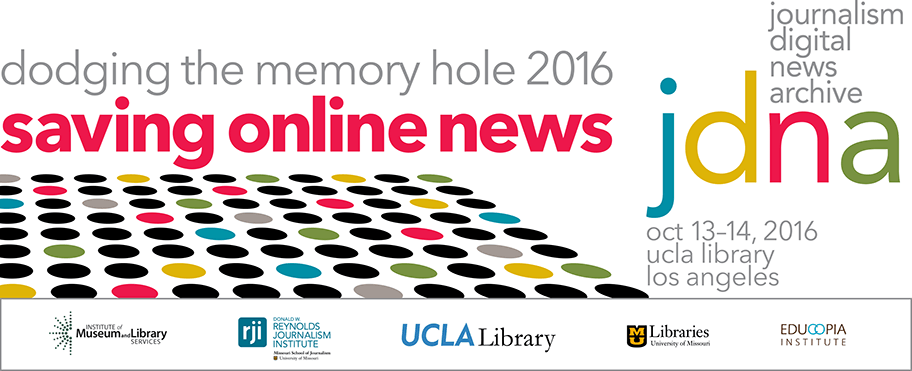
Jennifer Younger: Lightning rounds: Digital preservation: Aggregated, collaborative, Catholic
Scroll to view transcript
JENNIFER YOUNGER: [00:07] Thank you, Ed. It’s great to be here. I’m here on behalf of our many stakeholders, our partners, our members, advisors and, of course, founders. What’s fascinating is our work and our project has been a collaboration right from the beginning. Our partners and stakeholders, they know what they want, they know what their interests are, they bring expertise and, in some cases, they bring funding. In a nutshell, this is what we’re going to do. We’ve started, and we’re going to end with preserving the digital files.
[00:44] We’re live on the web. A status report from today, perhaps the most challenging — although I didn’t realize that at the time — aspect of this has been working with the publishers, the copyright owners, for the right — non-revocable, nonexclusive — to produce, make available and digitally archive the content of their papers. Tomorrow, we have big plans. We have a target of 350,000 pages.
[01:16] More importantly, we’re setting up a community platform, because we know there are Cath- olic newspapers out there who are digitizing on their own and want to add their content to the archive. Our job is to make that possible and easy for them. Digital preservation of Catholic news- papers, today, is nowhere. But everyone wants it. That’s the good news. So, our approach has been to choose an established program, in this case, MetaArchive Cooperative, because it’s a good fit for us. They have experience. They have expertise by and for working with memory organizations. Our biggest challenge is developing a long-term sustainability plan.
[01:59] Who pays for what, and what’s the potential revenue, from whom, for what, to whom. I’m not a digital preservationist. I have learned, been educated by colleagues, including Sam Meister and Katherine Skinner of Educopia, so I have learned how digital preservation works. And I’ve learned more about how it works. My takeaways on all of this are that trusted digital repositories are not accidental happenings. They require skilled operation, standards, systematic audits by yourself, by external agencies, such as the Center (Center for Research Libraries).
[02:41] Fortunately for us, our partners and our founders say, yes. They know why digital preservation is important. They get it. And they put more of the reasons on our website under our Catholic newspapers program. Thank you, it’s great to be here. We have a long way to go. This is our invitation to you, if you’re looking for a proof of concept, and you’re looking for somebody to work with, we’re here. Thank you.
